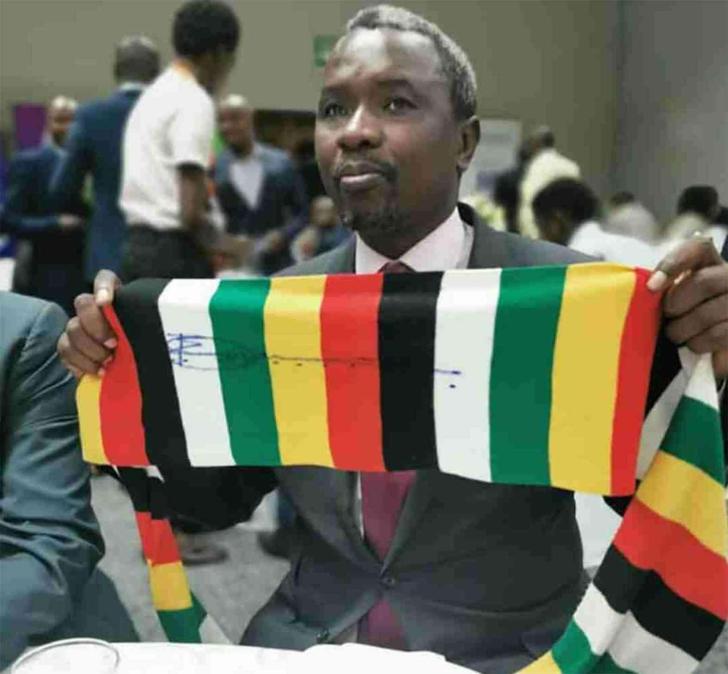News / National
'Zimbabwe banks can't seize farmers' land'
16 Jan 2025 at 07:04hrs |
1 Views

The introduction of bankable title deeds for State-owned land will not result in financial institutions seizing control of land or reverse the gains of Zimbabwe's Land Reform Programme, according to Mr. Kudakwashe Tagwirei, Chairperson of the Land Tenure Implementation Committee.
Speaking on ZBCTV's Face the Nation program last night, Mr. Tagwirei dismissed fears that beneficiaries of the agrarian reform who fail to service loans extended under the scheme would lose their land to banks. He also refuted claims that he would personally acquire land from defaulting farmers.
Mr. Tagwirei clarified that all land remains under State ownership, and banks only act as administrators for loans issued to farmers.
"The land belongs to the Government; it does not belong to the bank," he explained. "If a farmer fails to pay, the bank will consult with the Government. Ultimately, the Government remains the landowner, not the financial institution."
He noted that the estimated value of State-owned agricultural land, approximately US$20 billion, is beyond the capacity of any bank to mortgage. The scheme aims to ensure farmers are accountable while safeguarding national land ownership.
The issuance of title deeds is intended to support commercial farming by providing farmers with access to credit facilities while requiring them to work the land productively.
"Farmers are supposed to be commercial farmers, not subsistence farmers," Mr. Tagwirei said. "When you applied for that land, you committed to becoming a commercial farmer. The risks associated with that commitment include ensuring you can pay back loans through productive use of the land."
Mr. Tagwirei highlighted that title deeds, linked to unique national identification numbers, could indirectly address concerns about multiple farm ownership.
"Section 289 of the Constitution states that every citizen is entitled to land. A citizen is identified by a unique ID number. Title deeds are issued based on this ID number, ensuring that no individual can hold multiple farms under different identities," he explained.
While addressing multiple farm ownership is not the core mandate of the Land Tenure Implementation Committee, the system inherently promotes fairness and transparency in land allocation.
Responding to speculation about his financial influence, Mr. Tagwirei dismissed claims that he could amass large tracts of land.
"At an average valuation of US$2,000 per hectare, the total cost of purchasing this land is US$20 billion. I simply don't have that kind of money," he said.
President Mnangagwa launched the bankable title deeds initiative late last year as part of efforts to unlock the economic value of agricultural land and boost productivity.
The deeds are a product of recommendations from the Land Tenure Implementation Committee, which comprises 14 experts from various fields. The initiative is aligned with Zimbabwe's national development goals to modernize agriculture and enhance its contribution to the economy.
Mr. Tagwirei emphasized that the role of banks in the scheme is to administer funds, ensuring farmers have access to affordable financing while protecting the integrity of the Land Reform Programme.
Speaking on ZBCTV's Face the Nation program last night, Mr. Tagwirei dismissed fears that beneficiaries of the agrarian reform who fail to service loans extended under the scheme would lose their land to banks. He also refuted claims that he would personally acquire land from defaulting farmers.
Mr. Tagwirei clarified that all land remains under State ownership, and banks only act as administrators for loans issued to farmers.
"The land belongs to the Government; it does not belong to the bank," he explained. "If a farmer fails to pay, the bank will consult with the Government. Ultimately, the Government remains the landowner, not the financial institution."
He noted that the estimated value of State-owned agricultural land, approximately US$20 billion, is beyond the capacity of any bank to mortgage. The scheme aims to ensure farmers are accountable while safeguarding national land ownership.
The issuance of title deeds is intended to support commercial farming by providing farmers with access to credit facilities while requiring them to work the land productively.
"Farmers are supposed to be commercial farmers, not subsistence farmers," Mr. Tagwirei said. "When you applied for that land, you committed to becoming a commercial farmer. The risks associated with that commitment include ensuring you can pay back loans through productive use of the land."
Mr. Tagwirei highlighted that title deeds, linked to unique national identification numbers, could indirectly address concerns about multiple farm ownership.
"Section 289 of the Constitution states that every citizen is entitled to land. A citizen is identified by a unique ID number. Title deeds are issued based on this ID number, ensuring that no individual can hold multiple farms under different identities," he explained.
While addressing multiple farm ownership is not the core mandate of the Land Tenure Implementation Committee, the system inherently promotes fairness and transparency in land allocation.
Responding to speculation about his financial influence, Mr. Tagwirei dismissed claims that he could amass large tracts of land.
"At an average valuation of US$2,000 per hectare, the total cost of purchasing this land is US$20 billion. I simply don't have that kind of money," he said.
President Mnangagwa launched the bankable title deeds initiative late last year as part of efforts to unlock the economic value of agricultural land and boost productivity.
The deeds are a product of recommendations from the Land Tenure Implementation Committee, which comprises 14 experts from various fields. The initiative is aligned with Zimbabwe's national development goals to modernize agriculture and enhance its contribution to the economy.
Mr. Tagwirei emphasized that the role of banks in the scheme is to administer funds, ensuring farmers have access to affordable financing while protecting the integrity of the Land Reform Programme.
Source - the herald
Join the discussion
Loading comments…


































